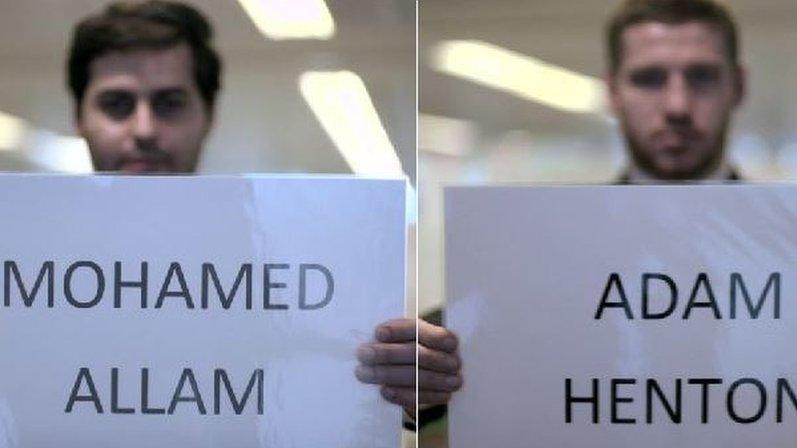Job search: Firms should ditch 'unethical' bias-causing CVs
- Published
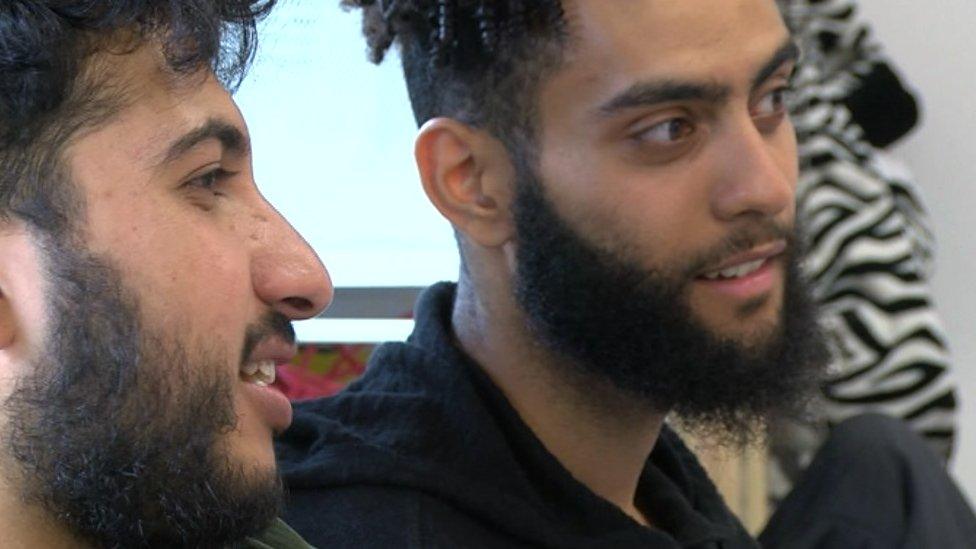
Isam Moghal and Mohamad Saleh are concerned employers may be biased against them because of their names
Companies should ditch "completely unethical" CVs to protect candidates from prejudice, says a careers advice organisation.
Denise Currell, HR head at Careers Wales, said businesses should instead adopt so-called "blind applications".
These do not reveal potentially bias-causing data.
Traditional CVs could do this by including name and address, which can give away ethnicity or financial situation.
It is about 15 years since Careers Wales started using blind application forms itself - and Ms Currell said she had not expected to be talking about bias in recruitment in 2019.
It comes as a community group in Butetown, Cardiff, warned too many young people from ethnic minority communities struggle to find work with big companies in the capital.
Ali Abdi, of Cardiff Citizens, said residents were not getting a "proper response" when applying for jobs despite being qualified.
Mr Abdi said: "They hope by encouraging businesses to take on name-blind and address-blind applications they would have a lot more faith in recruitment practices, rather than thinking actually it's their name or the community they're from that is causing them to be discriminated against. "
Jobseekers at a Butetown drop-in felt recruiters knowing their names held them back.
Elhadi, 17, had applied for more than 100 roles without success.
"A lot of people from my school who have English sounding names have part-time jobs, but only a few I know that don't have British names have part-time jobs," he said.
Despite being confident in his CV he had been "getting rejected a lot".
"I've started to think it could be to do with my name," he said.
Despite being born in Wales, Elhadi felt recruiters prejudged his ability to speak English.
This year research at Nuffield College's Centre for Social Investigation suggested British ethnic minority citizens send an average 60% more applications to get a positive response compared to white applicants.
Recently university graduates Isam Moghal and Mohamad Saleh both live in Butetown.
"I think our name does play a part, Isam and Mohamad aren't exactly the most English of names and people do see that," said business graduate Isam.
"It's been tough since I graduated. I'm trying to look for simple jobs to get experience, but even simple jobs like some in retail or support work for basic pay, have been hard.
"I've gone to career services and they've told me my CV was fine but after a few applications I've become quite disheartened."
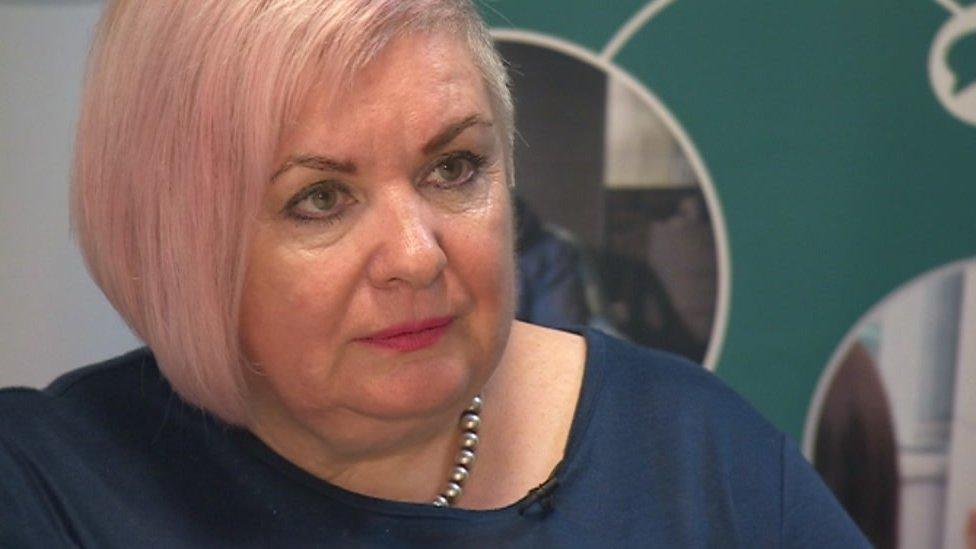
Careers Wales' Denise Currell had not expected to be talking about bias in recruitment in 2019
Mohamad had started to get anxious about his appearance if he did get an interview.
"I've had family members telling me maybe it's your beard - maybe try shaving off your beard that might help," he said.
"But I don't want to shave my beard just to get a job. I don't want to change myself just for a job."
Chisomo Phiri, from the All Wales BAME Engagement Programme, believed she too had fallen victim to recruitment bias, before finding her current job though university contacts.
"I just wasn't hearing anything back," she said.
The only reason she could think of was her name.
"I think if you're from an ethnic minority background and you seek out employment then you already feel like you're in second place," she said.
Legal and General employs about 1,800 people in Cardiff. Not being as representative of the community as it would like meant "something is not working somewhere."
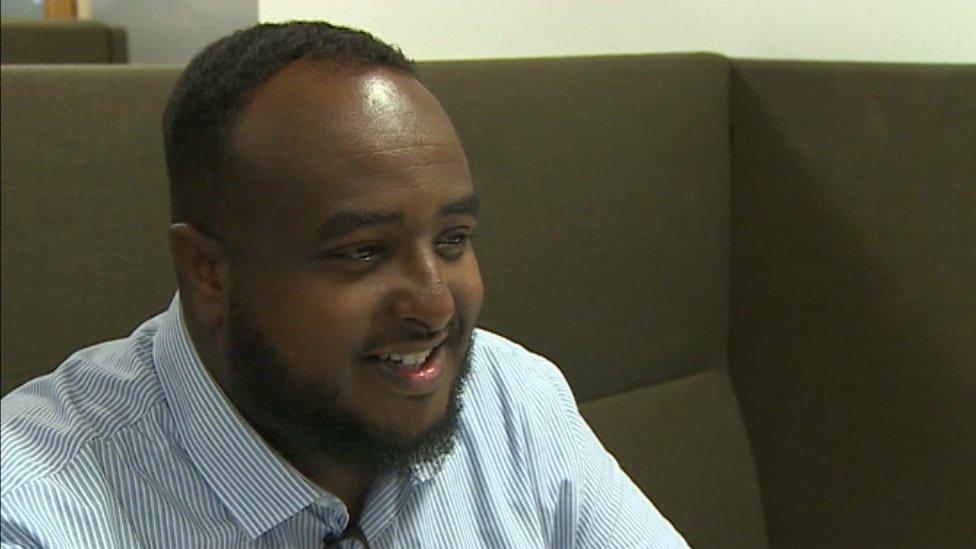
Ali Abdi, of Cardiff Citizens, said residents were not getting a "proper response" when applying for jobs despite being qualified
The firm's Odessa Barthorpe said by working with groups like Cardiff Citizens it hoped it could improve recruitment methods to attract black and ethnic minority applicants.
Ms Barthorpe said: "We have a responsibility, along with all the other companies in Cardiff, to make sure we are doing the things that we need to do to have a level playing field for everybody."
Ms Currell urged businesses to adopt blind application because she said a degree of unconscious bias is often unavoidable for any recruiter.
"It's completely unethical to allow those biases to spill into your recruitment practices, especially if you want to get the best candidate for the job," she said.
"We all have unconscious bias - we can't get away from that - so why not make it impossible to spill into your recruitment practices.
"There's no cost to this. I would have thought businesses, by now, would have understood that they get benefits from having this diverse workforce - and from having the best candidate for the role."
Related topics
- Published18 January 2019

- Published28 December 2018
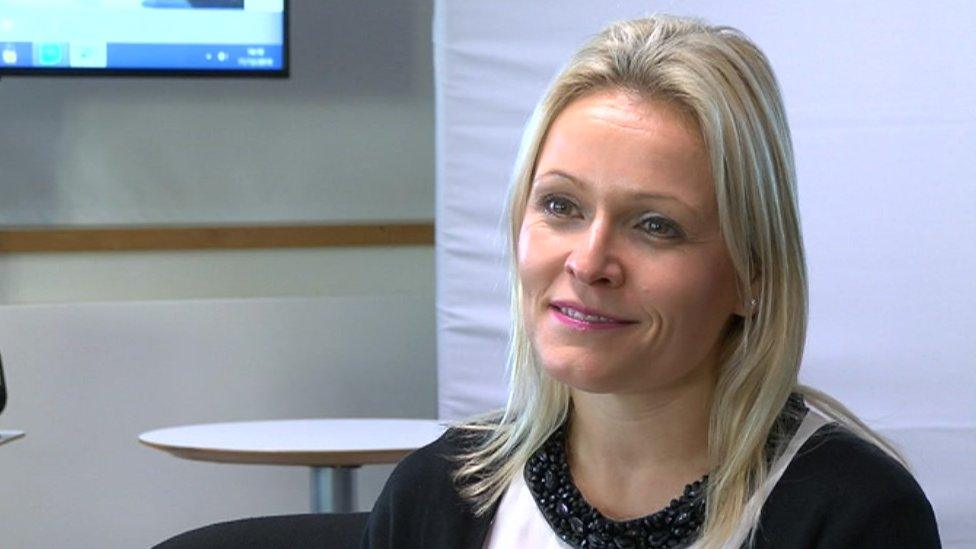
- Published6 February 2017
